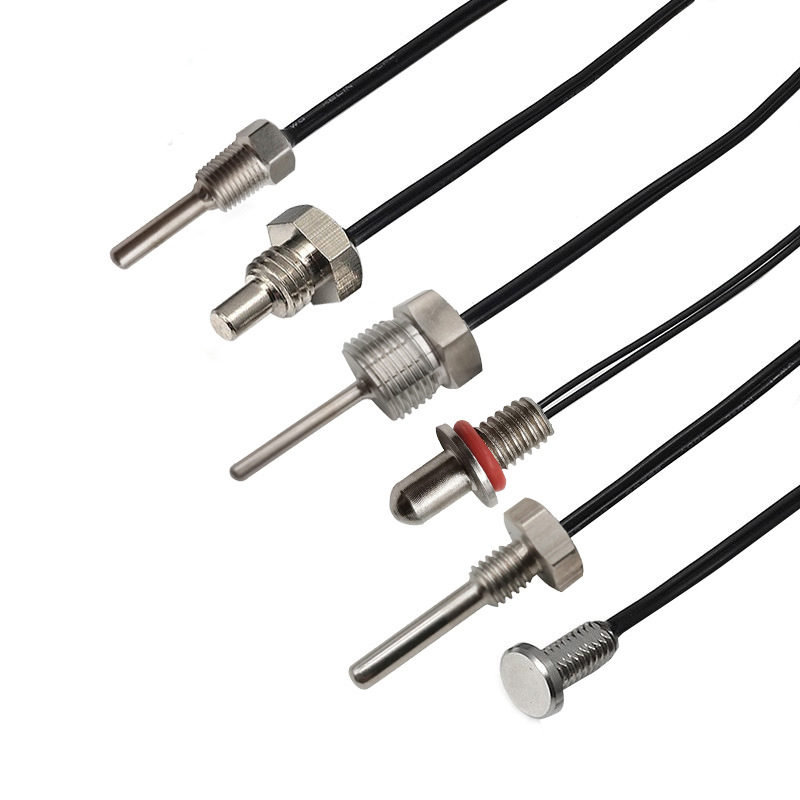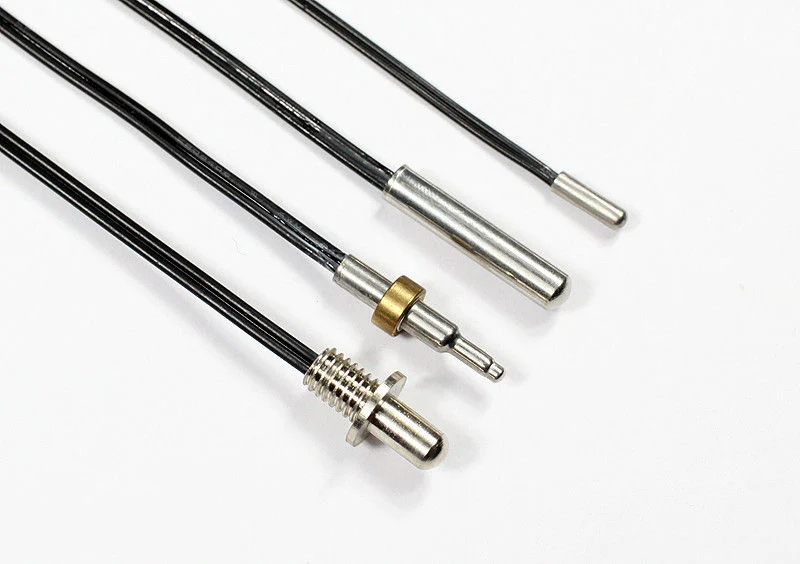Description
- automotive NTC (Negative Temperature Coefficient) temperature sensor is a type of thermistor that is commonly used in automotive applications to measure temperature. NTC thermistors are known for their high sensitivity and small size, making them ideal for use in automotive systems.
- Automotive NTC temperature sensors are typically used to measure the temperature of engine coolant, air intake, and ambient air. They work by changing their resistance as the temperature changes, which is then measured using a Wheatstone bridge or other circuitry to provide an accurate temperature reading.
- The most commonly used NTC thermistors have a resistance of 10,000 ohms at 25°C and are often referred to as 10K thermistors. These thermistors are widely used in temperature sensing applications,
- These sensors are typically designed to withstand the harsh conditions of an automotive environment, including vibration, high temperatures, and exposure to chemicals and other contaminants. They are often potted in a thermally conductive epoxy material to provide protection and improve heat transfer.
- Automotive NTC temperature sensors are available in various package styles and sizes to suit different applications, including surface-mount, through-hole, and leaded packages. Some sensors may also include additional features such as built-in signal conditioning or digital interfaces to simplify integration into a system.
- Overall, automotive NTC temperature sensors play a critical role in ensuring the proper functioning of the vehicle’s engine and other systems, and their high sensitivity and reliability make them an ideal choice for many automotive applications.





